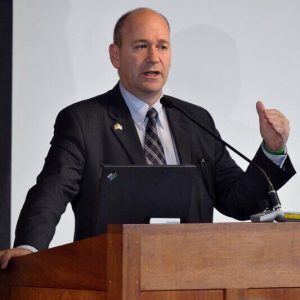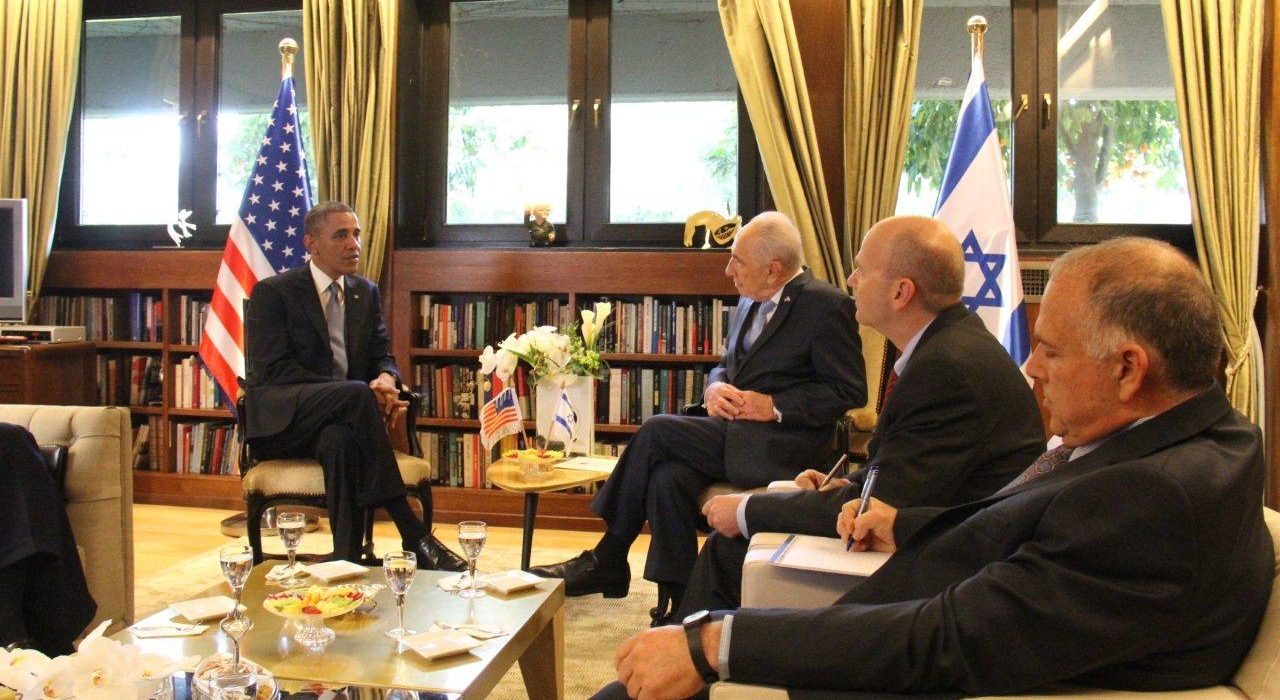- About Us
- Policy Center
- Learn
- Press Room
- Blog
- Get Involved
- Donate
- Donate to J Street Online
- Make a Gift in Someone’s Honor or Memory
- Make a Monthly Gift
- Tax-Deductible Donations
- Giving by mail

Before joining J Street, Nadav Tamir worked in the Israeli Foreign Ministry for more than a decade serving in a number of roles, including Political Officer at the Israeli Embassy in Washington, DC, and Israeli Consul General to New England. Tamir went on to serve as a senior advisor to Israeli President Shimon Peres. Along with his role as Executive Director of J Street Israel, he is an adviser for international affairs at the Peres Center for Peace and a board-member at the Mitvim Think Tank and steering committee of the Geneva Convention.
Tell us about your first posting to the United States and your first experiences in America? What did you ultimately learn about American politics?
My first time in the United States was in 1987, after retiring from the IDF where I served as a company commander. I’d gone on the traditional Israeli “after the army” backpacking tour of South America and when finished I arrived in New York I fell in love. I was just a peasant from a Kibbutz and here I was in the center of the world, in this amazingly dense urban jungle. I was amazed by the dynamism, the arts and culture scene and the endless possibilities. The second time was in 1990 when I accompanied my wife, who was doing her Master’s at Columbia University. We enjoyed every minute.
After returning to Israel I joined the Foreign Ministry. I knew that early-career diplomats were usually sent to small embassies to learn, but I was determined to go to DC. I managed to leverage the fact that I was in the Foreign Minister’s office where I was posted after the cadet course and was sent to our embassy in DC in 1997.
It was a remarkable learning experience, both about international diplomacy and domestic American politics. I learned about the power of passionate and organized constituencies. I saw how the establishment of the American Jewish community flexed real influence on American policies towards Israel (with both positive and negative outcomes, more on that later).
I later spent two more periods in Boston, the first 2003-2004 where I did my Masters at the Harvard Kennedy School of Government. Then, between 2006-2010, I served as Consul General for New England.
Around that time I was introduced to a new “start-up” called J Street and, cabled back to Israel that we should be enthusiastic about the potential for the organization to give a voice to pro-Israel, pro-peace, pro-democracy American Jews.
With that front-row seat to American politics and Jewish organizational power, what did you see as the key challenge to pro-Israel, pro-peace, pro-democracy American leadership?
Achieving peace through diplomacy requires bold leadership, political courage and long-term strategic thinking. In a situation as fractured and entrenched as the Israeli-Palestinian conflict, I believe peace demands the United States exert its leadership and influence on both sides as a trusted partner of both sides.
Look at the political courage it took for Carter to bring both Egypt and Israel to Camp David. It was an agreement that resolved a bloody, long-running conflict between bitter enemies, and it still holds 40 years later. It took enormous political courage, but Carter applied pressure to both sides and secured a deal that has been of enormous benefit to Israelis (and Egyptians).
Being in America in the 1990s and 2000s however, I saw how major Jewish institutions acted as a roadblock to that kind of bold, long-term strategic action. Any meaningful move by any American administration to achieve peace by applying pressure to both sides had become too politically risky. Rather than promote pathways to peace, Jewish organizations promoted a narrative that Palestinians were too violent or too ‘anti-Israel’ to negotiate with and there was “no partner for peace.” (This ignores the rather obvious fact that the whole point of a peace deal is to negotiate with your enemy, not your friends, to end an ongoing conflict). Peace and independence came to be thought of as a gift for the other side, rather than a strategic and national security priority for Israel itself.
Despite branding themselves as “pro-Israel”, I believe many groups continue to act against Israel’s interests by preventing American leaders from promoting the most important goal for Israel’s future as a democratic homeland for the Jewish people, a two-state solution. Over time, America’s failure to lead the parties to this outcome – and obstinance from hardliners in both Israel and the occupied territories – has led to this poisonous, worsening status quo. As an Israeli, with children in the IDF, I hold deep fears that this will lead to an increasingly unstable, unequal, undemocratic binational state.
Ultimately, this led us to the Trump Presidency and the symbiosis he had in connecting the most right-wing elements in the US and Israel together to advance policies that could ultimately destroy any hope for Israel’s future as a democratic Jewish homeland. That’s the inevitable endpoint of the current trends, and it’s up to liberal and progressive Americans – including the majority of the Jewish community – to push for bold action to stop that from happening.

Why is J Street’s work important to you personally?
J Street deals with all the things that I am passionate about and feel that I can bring professional value. The Israeli-Palestinian conflict, the US-Israel relationship, The Israel-Jewish Diaspora relations and American politics.
Beyond that, Israel is my home, it’s where my family lives and it’s a country I have worked for throughout my entire career – from serving in the IDF to becoming a diplomat to working for President Peres. I care deeply about the future of our society, our democracy and our security, and J Street’s role in transforming the politics of Israel in the United States is critical.
As an IDF Officer, you’ve seen the occupation up close. What do you want others to know about it, and its impact on Israel’s future?
The occupation is the one existential threat to the ability of Israel to be both the homeland of the Jewish people and a democracy. It is a constant threat to our ability to be a moral nation and it corrodes our national character and international reputation – not to mention the oppressive impact it has on millions of Palestinians whose lives are disrupted, restricted and too often cut short.
The occupation endures because the majority in Israel and Palestine don’t think that they have a partner for peace and believe that there is no support for the two-state solution. They are wrong on both counts, but without leadership that articulates either hope or urgency, most people become apathetic and indifferent.
Netanyahu especially has capitalized on this, triangulating a coalition by convincing Israelis (and many American Jews) that negotiations are useless and peace is impossible, while also allying himself with the settlement movement who do everything in their power to make sure negotiations can’t go anywhere and that a two-state solution is pushed further and further out of reach. To one audience he complains there is no partner for peace, to another he brags that he can be trusted never to be a partner for peace himself. The security barrier and minimal coverage of what goes on in Gaza and the West Bank also mean the issue is given low priority in the day-to-day lives of Israelis. The reality of millions of Palestinians is all too easy to ignore.
It’s a situation that cries out for American leadership.
With different leaders, and a different political calculus, could a different outcome be possible?
Definitely. I remember meetings between President Peres and President Obama that I participated in. I remember thinking that if it was up to those two, we would have peace.
Sadly, at the time, President Peres was no longer the head of the executive in Israel. President Obama felt that another fight with the Israeli Prime Minister will make it harder for him to promote his legislative agenda. Even so, I felt that if he had enough support from the Jewish community he could have achieved so much more in the Israeli-Palestinian context.
Reshaping the political calculus in the United States matters, which is why the work of J Street is so fundamental.
What’s your ultimate vision for Israel?
I would like Israel to be in peace with its neighbors alongside a free and prosperous Palestinian state, a model to the world in terms of pluralism and social justice. Despite the current state of politics, I still believe that it is possible and that J Street will be fundamental to making it happen.